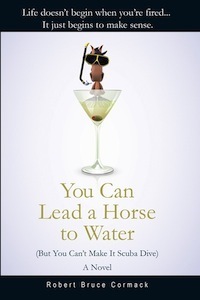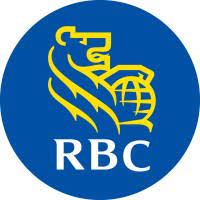Why Books Are a Bargain (And Television Isn't).

Here, we are, sitting on a goldmine, and we don’t realize it. In every bookstore across the country, across the world, you’ll find bargains galore. I’m not talking about the remainder bin. I’m talking about every book — literature, fiction, self-help, romance. Anything you read is a bargain.
Think for a minute of what goes into a book. Thousands of hours are spent writing. Hundreds more are spent worrying about the book's reception. If history is rife with alcoholic writers, you can understand why. Even bestselling authors produce duds. Hemingway’s “Islands in the Stream” was a dud, even though some of the deleted chapters became “The Old Man in the Sea.”
That’s not much consolation considering how long it took Hemingway to write “Islands in the Stream” (he estimated about two years). Duds take as long as bestsellers, and, unfortunately, there are no shortcuts — even for literary geniuses. Anyone who says they’ve dashed off a book is lying.
Charles Bukowski used to say, “I get drunk, sit down late at my typewriter, and everything just flows.” Here’s the truth about Bukowski: He spent years studying everything John Fante ever wrote. Read Fante’s “Ask the Dust” and you’ll see an uncanny resemblance to Bukowski’s “Post Office.” The sentence structure, the central figure, the first person narrative, it’s all pure Fante.
Bukowski always gave credit to Fante. “Once I read Fante, I knew I wanted to write like that,” he said. It’s what writers, artists, poets — even architects — have always done. We copy those better than us. Eventually, our own style emerges. To not copy is to operate blind. No author of any significance has worked strictly from their own creativity. We’re all plagiarists.
Look at Hunter S. Thompson. Throughout his career as a roving reporter, staying in motels, he always read the Bible. He wasn’t religious, he simply believed in form. He wanted clarity in his writing and he found the best examples in psalms. Hunter was so fanatical about style, he once copied out the entire “Great Gatsby” just to understand F. Scott Fitzgerald’s pacing.
Before Dale Carnegie wrote “How to Win Friends and Influence People,” he talked to hundreds of individuals, some corporate tycoons, some simply people who’d overcome great adversity. By the time he wrote “How to Stop Worrying and Start Living,” he’d developed the recognized format for the “self-help” book. Everyone writing self-help books owes a debt of gratitude to Dale Carnegie.
The whole genre of hard-boiled detective novels started with one man, a former Pinkerton operative named Dashiell Hammett. “Every character I’ve ever written about, I’ve met,” he once said. Out of his experiences came books like “Red Harvest” and “The Thin Man Series.” They were rough and bleak, but they spawned others like Raymond Chandler and James M. Cain, all producing gripping stories, some becoming major movies (Hammett alone had seventeen movie adaptions made from his books).
Books also represent the hardships of the author. I’ve never read a funnier or more acute novel than John Kennedy Toole’s “Confederacy of Dunces,” yet his own life was incredibly tragic. The original manuscript for “Confederacy” was passed around for years. Everyone said it was a good book, but no one thought it was “there yet.” In frustration, Kennedy committed suicide. Having only the early, unrevised manuscript, his mother sent it to Walker Percy. When Percy finally got around to reading the smudged pages, he was shocked. “On my third reading of it,” he said, “it astounds me more than the first.”
Behind every book is a story. Each author is a product of survival (something Francis Parkman described in “The Oregon Trail” about Indians). We write, we re-write, we deal with rejection, bad reviews, no reviews, nefarious publishers, even more nefarious self-publishers. All just to see our books on a shelf, to have someone say they actually “liked” it. For that, many of us have lost money, lost friends, lost time sitting in small rooms at a computer.
My point is, you’re getting a bargain with a book — any book. Even a dud teaches us something (like, how not to write). Sure, you can say television, movies, video games give you hours of enjoyment. But think what you spend on movies or buying the latest Xbox. Most books cost less than half the average hourly wage.
And what do you learn gaming or being online? They say gaming improves your reflexes and cognitive reasoning. Being online keeps you connected to other people. Still, in the end, what have you actually learned?
Books offer new insights, they broaden your perspective. Dale Carnegie has helped millions of people accept themselves. J. K. Rowling took children into a new dimension of wizards and fantasy. Many publishers told her young people didn’t have the attention spans anymore. She proved them wrong. Harry Potter sales have set records all over the world. You might say Rowling almost single-handedly saved children’s imaginations.
A woman wrote an article last week, claiming some people only read one book a year. I couldn’t confirm this, but it’s likely true. Most people I asked said they’re too busy. “I’m living life to the fullest,” a friend of mine claimed. She’s recently taken up dragon boat racing and cross-country skiing. On Facebook, she has over five thousand “friends.” I asked her the same question: What have you learned?
As much as we want to embrace new technology, new sports, new ways of “living life to the fullest,” we don’t comprise any of this by reading books. If anything, we become wiser, more fulfilled people. Reading is a constant education, introducing us to new worlds and experiences.
To say “I don’t have time to read” is like denying yourself some of life’s greatest revelations. Considering what that entails, you’re getting a bargain. We all like bargains, right? Well, maybe you should pick up a book.
Do you agree? Or am I preaching an old story? Let me know at: rcormack@rogers.com
Robert Cormack is a novelist, freelance copywriter and blogger. His first novel “You Can Lead a Horse to Water (But You Can’t Make It Scuba Dive)” is available online and at most major bookstores. Check out Yucca Publishing or Skyhorse Press for more details (you can also buy from them).

""
Articles from Robert Cormack
View blog
In honour of Women's Day, let's see which is more offensive. · “Life is tough, darling, and we’d bet ...

“Sayin' ball of confusion, that's what the world is today, hey, hey.” Norman Whitfield and Barrett S ...

Has the world gone crazy, or are we having daddy issues? · “The end move in politics is always to pi ...
Related professionals
You may be interested in these jobs
-

Data Analyst
Found in: beBee S2 CA - 3 weeks ago
Royal Bank of Canada VANCOUVER, Canada Full timeJob Summary · Job Description · What is the opportunity? · The Data Governance Office (DGO) at RBC Global Asset Management (GAM) is accountable for implementing and maintaining GAM's Data Management Program. The DGO has authority over the governance of all information at GAM and ...
-

Deliver Eats with Uber Eats
Found in: beBee S2 CA - 2 weeks ago
Uber eats Salisbury, Canada Full timeYour Schedule. Your Goals. Start Delivering with Uber. · What is Uber? · Delivering with Uber is an alternative to a part-time or full-time job and can get you earning cash quickly. Delivering with Uber allows you to earn quick cash while maintaining the flexibility your schedule ...
-
health care aide
Found in: Talent CA 2 C2 - 2 days ago
Pro Vita Care Management Morinville, CanadaDurée de l'emploi: Permanent · Langue de travail: Anglais · Heures de travail: 35 hours per week · Education: · Expérience: · Education · College, CEGEP or other non-university certificate or diploma from a program of 3 months to less than 1 year · Work setting · Willing to rel ...

Comments
Robert Cormack
7 years ago #2
Gert Scholtz
7 years ago #1